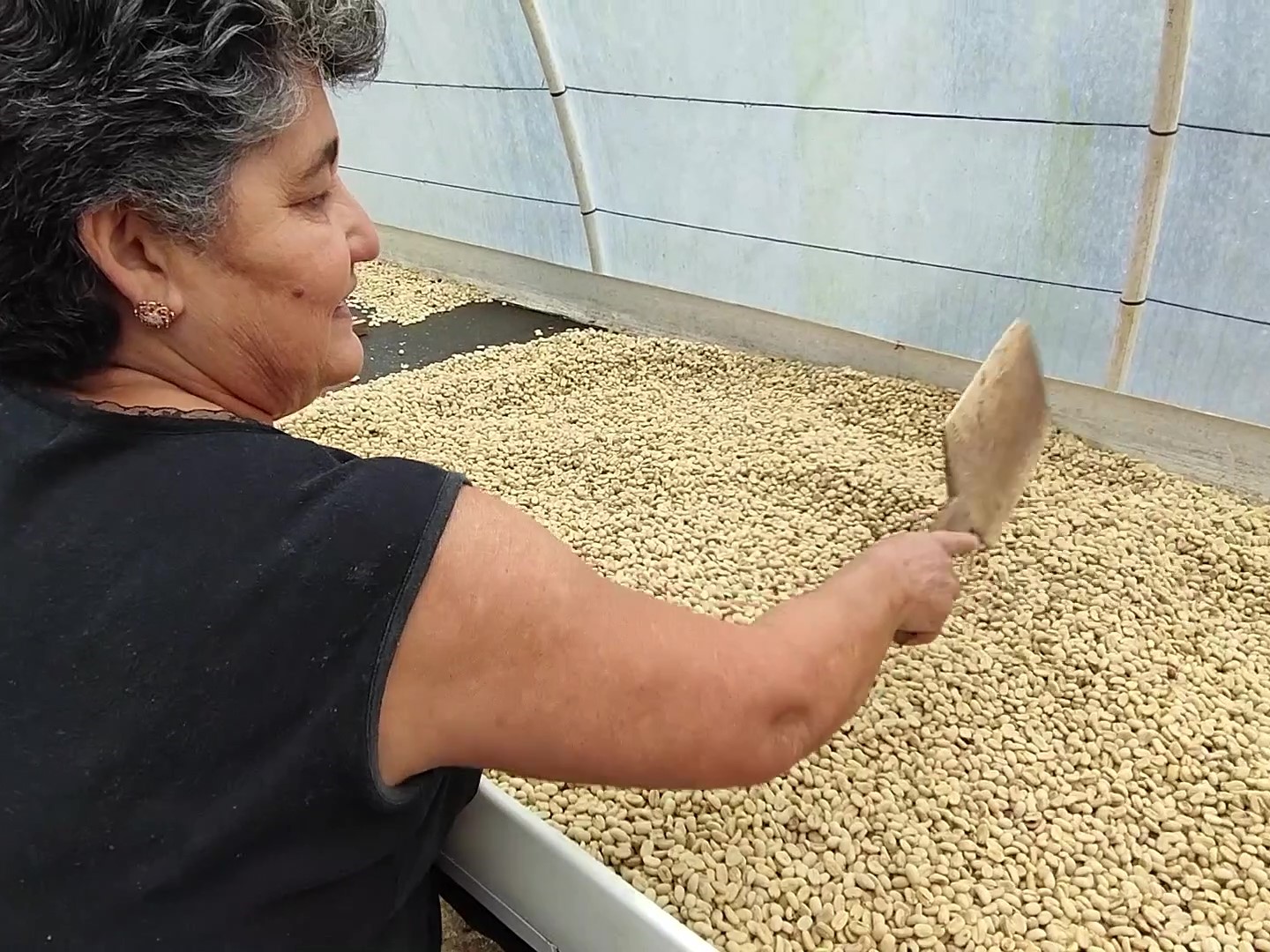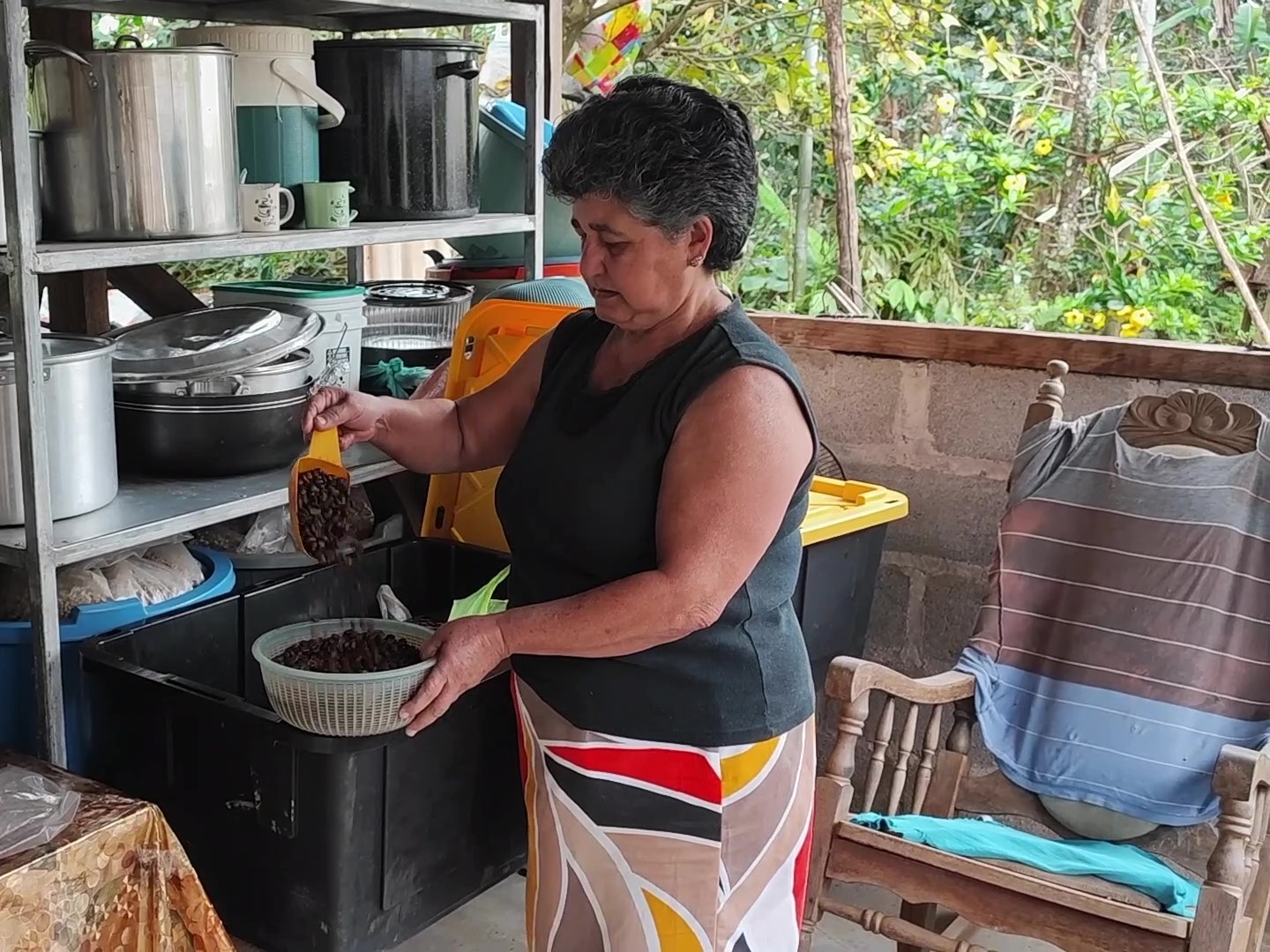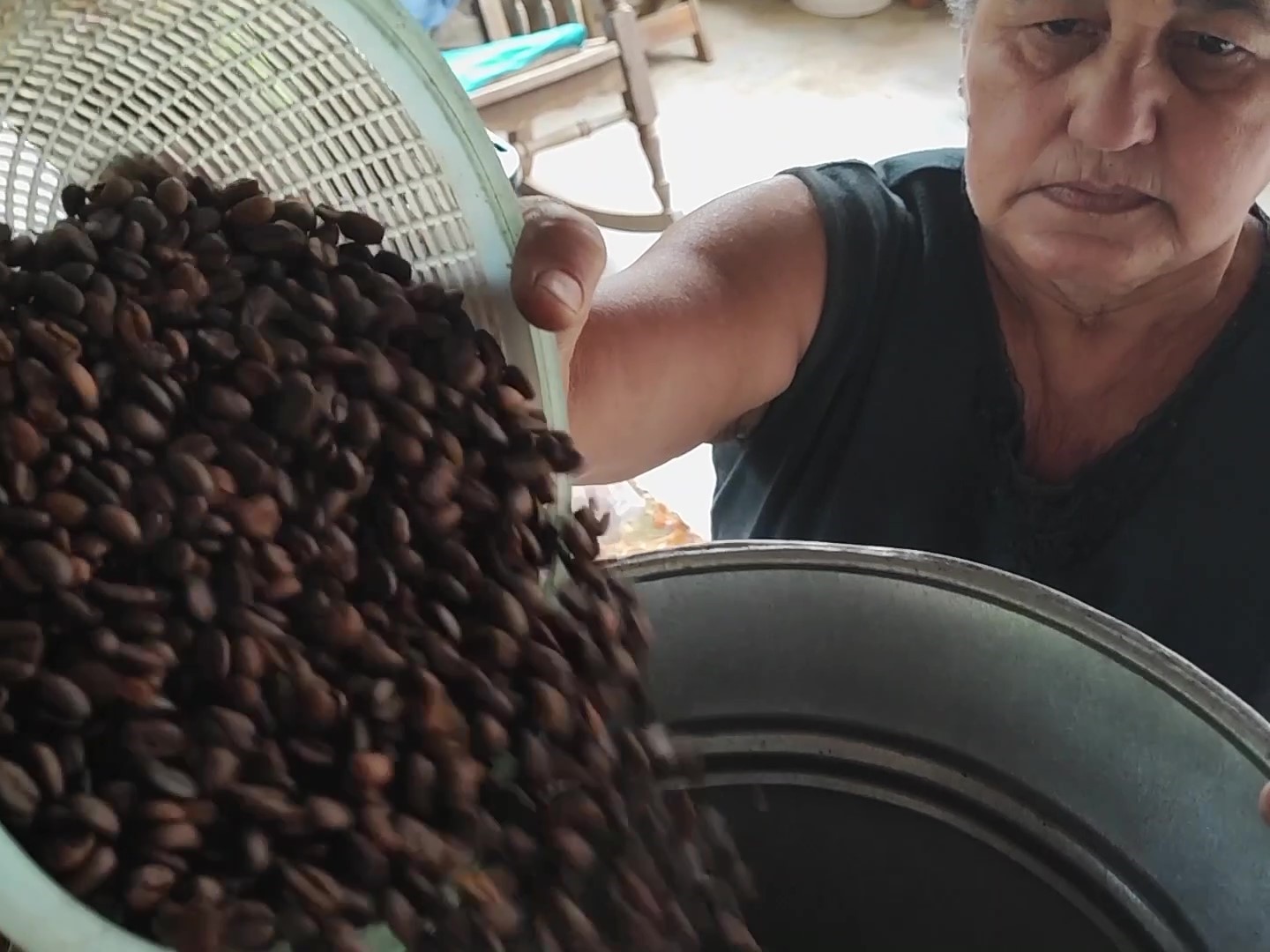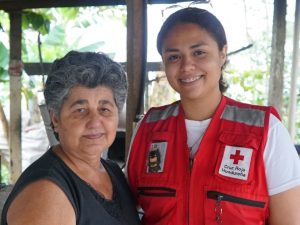A growing business
To help Lourdes step up her production and grow her business, the Red Cross provided her with some simple, but necessary equipment, such as a coffee roaster, a coffee grinder, a shelf for better storage and some trays.
Through collaboration with specialised engineers from the Honduran Coffee Institute, Lourdes and her family have acquired valuable knowledge to improve the quality of their coffee and to perfect their production.
In addition, Lourdes and her family have learned new ways to promote and sell their product. They now have a special package to make the brand they use, Moreno’s Coffee, more recognizable.
A big part of the success of Moreno’s Coffee is the service and attention to the diverse tastes of Lourdes’ customers. For example, she has diversified their offerings, incorporating special flavours such as pepper or cinnamon flavour.
“When a customer asks me, I serve them pepper or cinnamon flavoured coffee,” says Lourdes. “People like the coffee we produce because apart from having passion, we have love for what we do. And I think that’s very important.”
 Red Cross Red Crescent magazine
Red Cross Red Crescent magazine 









